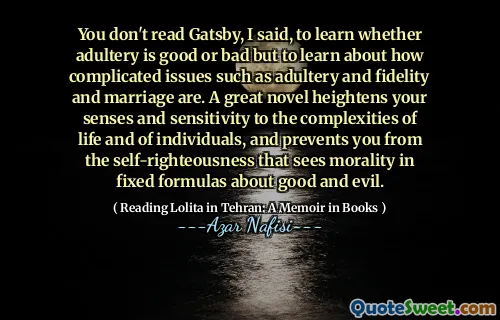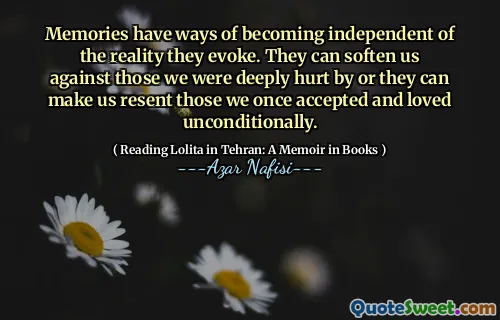
She had not learned from reading it that adultery was good or that we should all become shysters. Did people all go on strike or head west after reading Steinbeck? Did they go whaling after reading Melville? Are people not a little more complex than that?
📖 Azar Nafisi
In "Reading Lolita in Tehran," Azar Nafisi explores the impact of literature on individuals, questioning the simplistic notion that reading certain authors leads to uniform behavior or beliefs. She challenges the idea that exposure to works like those of Steinbeck or Melville directly prompts readers to change their lives drastically, such as going on strike or embarking on adventures. Nafisi argues that the relationship between literature and personal action is not so straightforward.
Nafisi emphasizes the complexity of human nature, suggesting that readers engage with literature on a deeper level. She believes that people interpret texts in diverse ways, influenced by their unique experiences and cultural contexts. This nuanced perspective underscores the role of literature in shaping thought and identity, rather than dictating actions or moral conclusions.











